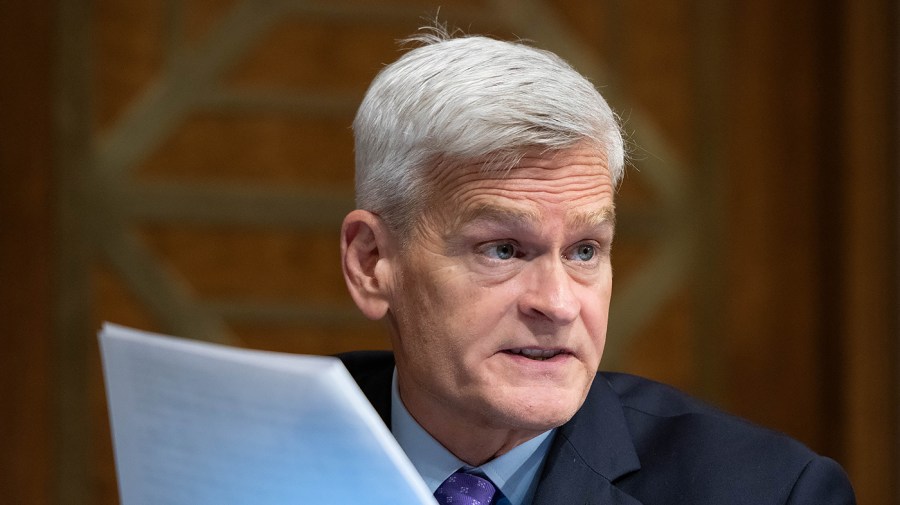The Senate voted overwhelmingly Thursday to advance a bill to boost Social Security benefits for more than 2 million Americans by repealing two laws that have limited payouts to state and local public-sector workers and their families.
It advanced by a vote of 73-23.
It was a strong show of support for a bill that would help police officers, firefighters, educators and government employees who receive benefits from a public pension not covered by Social Security.
The legislation passed the House earlier this month by a vote of 327 to 75.
It still must pass one more procedural hurdle in the Senate before receiving a final vote. President Biden is expected to sign it once it reaches his desk.
Sen. Susan Collins (R-Maine), who championed the legislation, said it would address “the horrendous inequities” of the Windfall Elimination Provision (WEP) and the Government Pension Offset (GPO).
Together, the two statutes reduce Social Security benefits for workers who receive public pensions and their spouses, and lawmakers who supported the measure said in some cases it cut benefits so much that it pushed retirees close to poverty.
“Both combined created such inequities for people who had earned their Social Security benefits or who had spouses who worked in the private sector and earned their benefits,” Collins said.
Sen. Bill Cassidy (R-La.), who joined colleagues in reintroducing the legislation this Congress, talked about Ms. Betty, a high school civics teacher in Louisiana, who “worked her whole life teaching in public schools” and whose husband worked for Exxon. She saw her monthly Social Security benefit cut to $200 a month after her husband died.
“She would have been better off had she never worked than had she worked when it came to her Social Security benefit,” Cassidy said.
He said nurses, techs and janitors at the public hospital where he worked as a doctor face the same reductions in Social Security benefits because of WEP and GPO.
The bill’s sponsors say that nearly $2.3 million Americans would see their Social Security benefits increase once the legislation is signed into law.
The Congressional Budget Office (CBO) projected in September the legislation would add $196 billion to the federal deficit over the next decade and speed up Social Security’s insolvency by six months without further intervention from Congress.
The legislation encountered stiff resistance from budget hawks in the Senate Republican Conference during a contentious lunch meeting Tuesday.
Senate Steering Committee Chair Mike Lee (R-Utah) called for offsetting the cost of the legislation to avoid blowing “a massive hole in the Social Security trust fund.”
“It’s got to be offset one way or another. We have never in history, to my knowledge, unleashed such a massive bomb that would blow such a massive hole in the Social Security trust fund — $200 billion,” he said.
“I understand the need to address some inequities that have arisen in this area. I don’t think there’s any member of our conference who doesn’t think that we need to do some repair, but I think we’re kidding ourselves and mistreating the American people if we blow a $200 billion hole in it and give no thought to how to fix that,” he said.
Senate Republican Whip John Thune (S.D.), who will take over as Senate majority leader next year, expressed his opposition to the bill behind closed doors.
But Thune later told reporters that he would let fellow GOP senators vote as they wanted.
“I think in the end, it’s going to come down to individual members are going to make their own decisions,” he said.
Twenty-four Republican senators voted to end debate on proceeding to the measure Wednesday, including Vice President-elect JD Vance (Ohio).
Sen. Mike Braun (R-Ind.), a self-described fiscal conservative who voted for the bill, said the cost of restoring millions of Americans’ full Social Security benefits wouldn’t cost that much in the grand scale of Washington spending.
“That was simple logic for me, even though I’ve been one of the loudest fiscal conservatives,” he said. “It was addressing in my opinion a real issue of inequity.”
He called the bill’s cost “chump change per year” considering that the federal government now spends more than $6 trillion a year.
Two retiring members of the Democratic caucus, Sens. Tom Carper (D-Del.) and Joe Manchin (I-W.Va.), voted against the bill.

